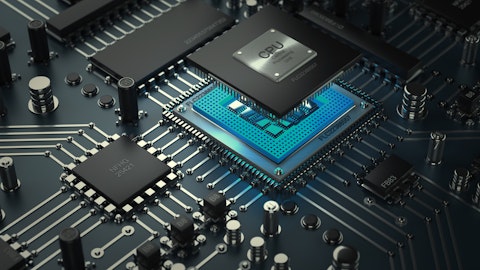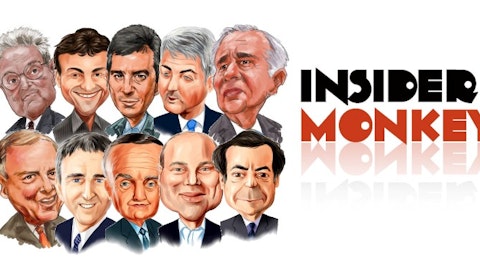This week was a big week in tech. Tesla Inc. (NASDAQ:TSLA) fell below $200 and closed the week below that round number. Half a year ago, very few Tesla bulls would have thought Tesla would trade where it is. Some believe Tesla shares could go lower given its cash burn. Others believe Tesla’s demand is stronger than what the market expects and things might improve. We can only watch now as Tesla’s stock moves makes more news than its cars. Of the around 700-740 elite funds we track, 47 funds owned $878.62 million of Tesla Inc. (NASDAQ:TSLA) on December 31, versus 31 funds and $373.71 million respectively on September 30. Tesla isn’t the only stock that trended this week. Let’s analyze four more. Read on to find what they are.
Our research has shown that hedge funds’ small-cap stock picks managed to beat the market by double digits annually between 1999 and 2016, but the margin of outperformance has been declining in recent years. Nevertheless, we were still able to identify in advance a select group of hedge fund holdings that outperformed the market by 38 percentage points since May 2014 through May 15, 2019. Our best performing hedge funds strategy also returned 26.4% year-to-date and outperformed the S&P 500 Index by nearly 12 percentage points (see the details here). We were also able to identify in advance a select group of hedge fund holdings that underperformed the market by 10 percentage points annually between 2006 and 2017. Interestingly the margin of underperformance of these stocks has been increasing in recent years. Investors who are long the market and short these stocks would have returned more than 27% annually between 2015 and 2017. We have been tracking and sharing the list of these stocks since February 2017 in our quarterly newsletter.

Alphabet Inc (NASDAQ:GOOG) was in the news for it shutting Huawei out from Android after a 90 day license is up. Alphabet had to shut Huawei out of Android because the Trump administration placed the Chinese company on a tech blacklist that prevented american companies from doing business with it. Some analysts believe Alphabet could lose around $150-$200 million for the ban. Nomura Instinet believes the number in the worst case could be $375-$425 million annually. Given Alphabet reported revenue of around $130 billion last year, the amount isn’t a big deal. Of the around 700-740 elite funds we track, 141 funds owned $12.83 billion of Alphabet Inc (NASDAQ:GOOG) on December 31, versus 130 funds and $13.71 billion respectively on September 30.
QUALCOMM, Incorporated (NASDAQ:QCOM), Intel Corporation (NASDAQ:INTC), and Xilinx, Inc. (NASDAQ:XLNX) were also in the news due to the Huawei news. Seeing as how Huawei is the world’s second largest phone maker and that it sources chips from the three American companies, the ban will likely affect the three chipmaker’s demand in the future. Although Xilinx has never publicly identified Huawei as a big customer, some analysts believe the company benefits from demand for chips in various 5G wireless base-stations. Intel supplies some of Huawei’s data-center products and QUALCOMM helps with the phone system. China is a big market for the three companies and Huawei has substantial market share in China. Bulls hope that the trade war can be settled so there is less pain for the three companies. 51 top funds were long QUALCOMM, Incorporated (NASDAQ:QCOM) at the end of December, up 3 funds from the previous quarter. 65 elite funds owned shares of Intel Corporation (NASDAQ:INTC) at the end of December. 48 top funds owned shares of Xilinx, Inc. (NASDAQ:XLNX) at the end of the fourth quarter, up 12 funds from the previous quarter.
Disclsoure:none





